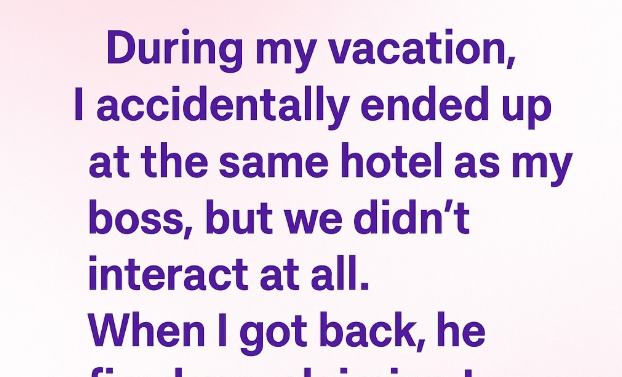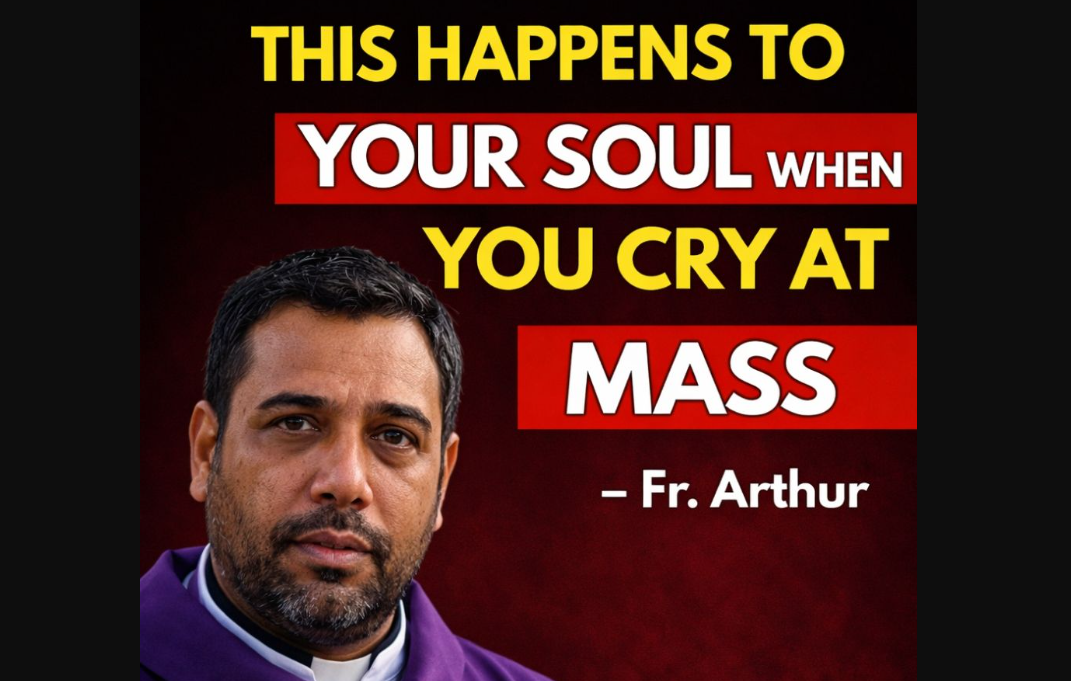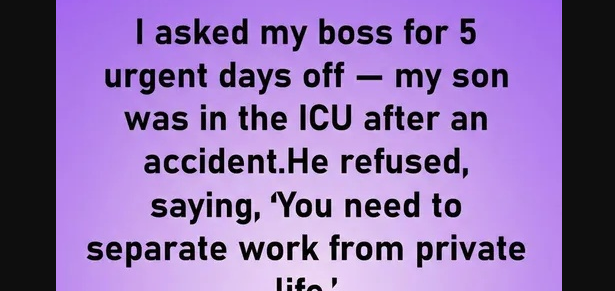While on my vacation, I found myself staying at the same hotel as my boss, purely by chance. We hadn’t coordinated our plans; we simply ended up at the same location. We occasionally passed each other in the hotel lobby or near the pool, but we kept our distance, exchanging no words. My focus was on unwinding, keeping work far from my mind. I assumed we’d both return to our routines at the office without any fuss.
Upon my return, however, the situation took an unexpected turn. My boss summoned me to his office and, without warning, terminated my employment. His stated reason was that I hadn’t been “engaging enough” during the trip. The accusation left me speechless. My work record was solid, and the vacation had no connection to my job. The decision felt deeply unjust, tinged with something personal. Then I recalled the images I’d noticed during my stay—snapshots of him behaving improperly with unfamiliar faces at the hotel bar.
Feeling unfairly treated, I chose to share those photos anonymously with his spouse. I had no grand expectations; I simply believed the truth deserved to surface. A week later, I received an unexpected call from the company’s HR team. They had initiated a formal inquiry after several complaints came to light. The evidence I provided helped uncover a recurring pattern of inappropriate conduct that the company had previously ignored.
To my amazement, they offered to reinstate me, along with a promotion. My former boss was placed on extended leave while the company continued its review. What started as a random overlap during a getaway became a pivotal moment in my professional life. I came to see that standing up for oneself, even discreetly and honestly, can pave the way for justice in surprising ways.






